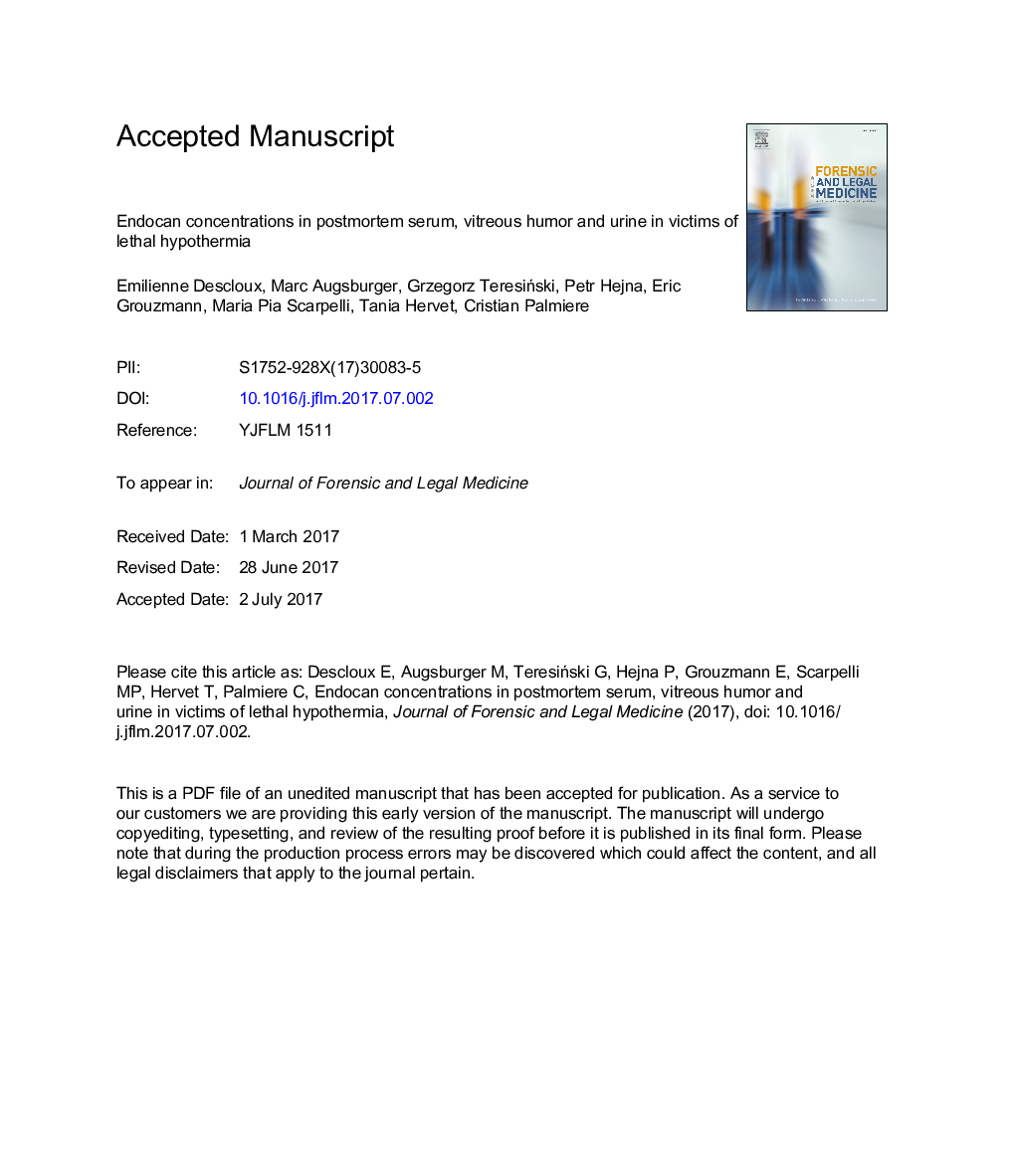| Article ID | Journal | Published Year | Pages | File Type |
|---|---|---|---|---|
| 4760654 | Journal of Forensic and Legal Medicine | 2017 | 13 Pages |
Abstract
Endocan is a soluble molecule secreted from vascular endothelial cells of various organs. Its exact function in humans remains to be elucidated, though it has been postulated that increased tissue expression or serum levels of this molecule may be an indicator of endothelial activation and neovascularization. In the realm of forensic pathology, studies pertaining to endothelial activation following exposure to cold exclusively focused on thrombomodulin, a transmembrane protein specific to endothelial cells. In the study herein described, endocan concentrations were determined in postmortem serum, urine and vitreous humor samples collected during autopsy in a series of cases that underwent medicolegal investigations. A total of 76 autopsy cases were selected and three study groups (hypothermia group, sepsis group and non-hypothermia/non-sepsis group) prospectively formed during the study period. The obtained results seem to indicate that exposure to cold and subsequent death is not distinguished by significant endothelial dysfunction causing enhanced endocan secretion.
Related Topics
Life Sciences
Biochemistry, Genetics and Molecular Biology
Genetics
Authors
Emilienne Descloux, Marc Augsburger, Grzegorz TeresiÅski, Petr Hejna, Eric Grouzmann, Maria Pia Scarpelli, Tania Hervet, Cristian Palmiere,
